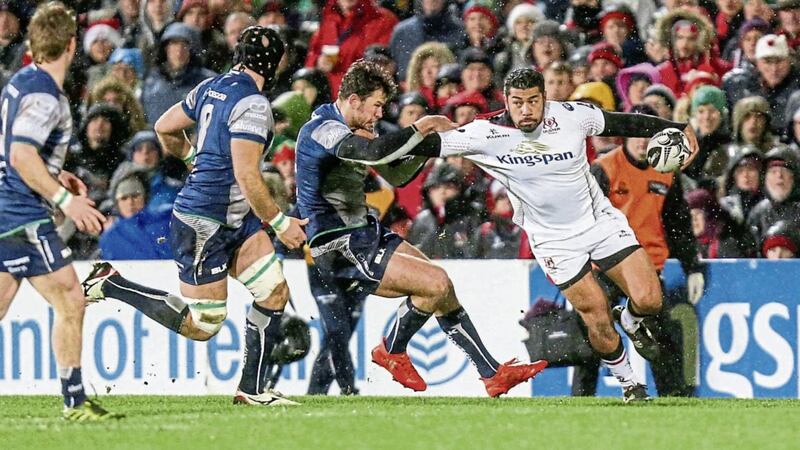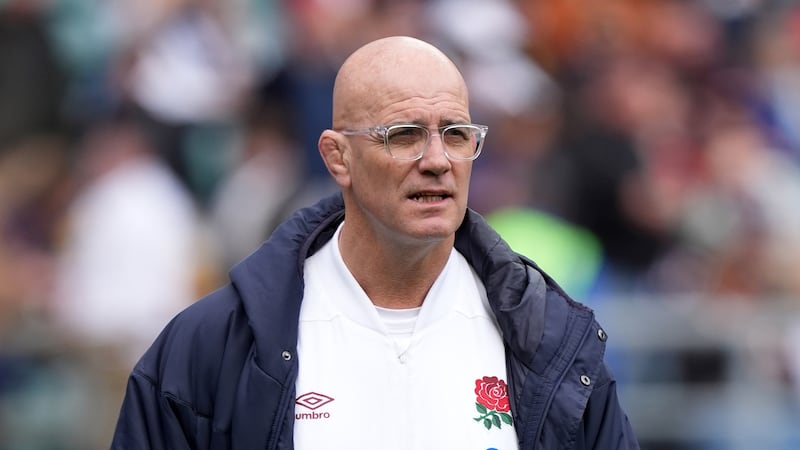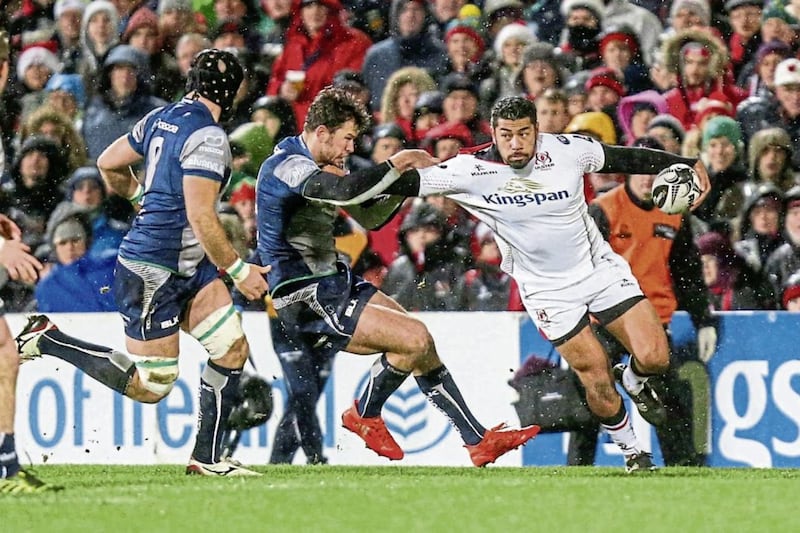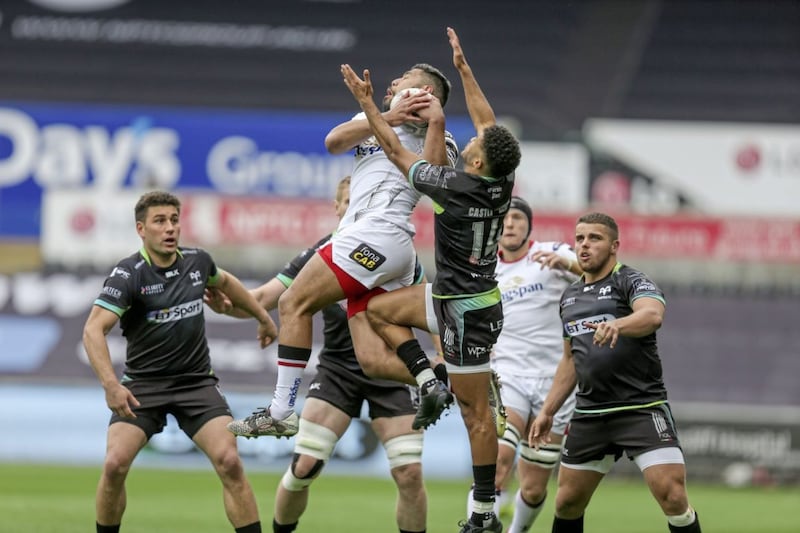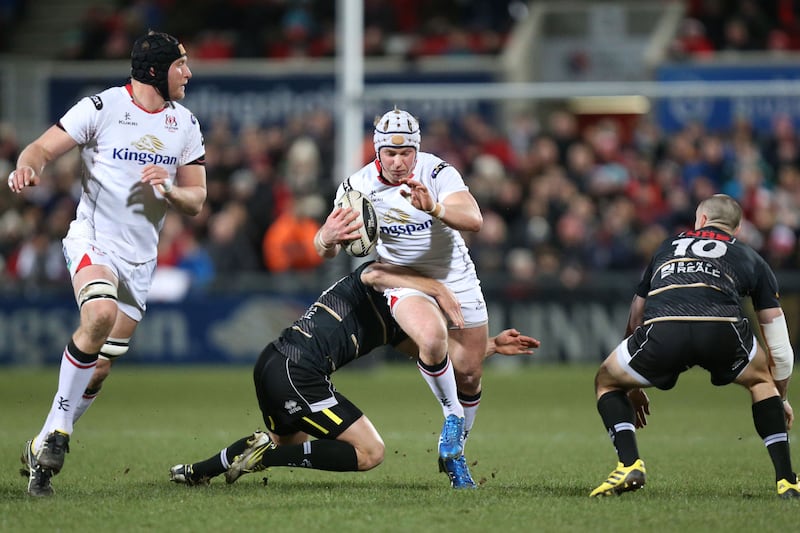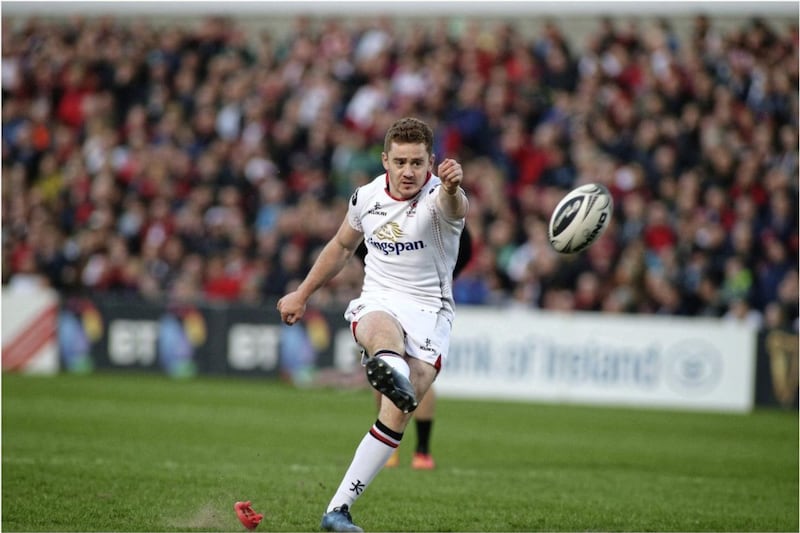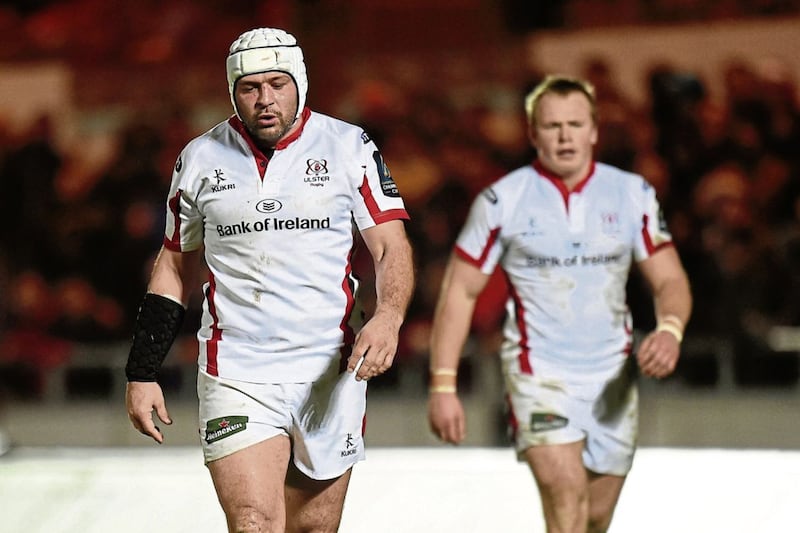THE Guinness Pro12 will become the Pro14 and undergo a restructure after the introduction of South African sides Southern Kings and Cheetahs was confirmed yesterday.
Having been cut from the Super Rugby tournament, they have committed to a six-season deal that is worth around £6m per season to the league, including a 50 per cent increase in TV revenue from what the Pro12 had been making.
The existing 12 teams will all receive £500,000 extra that will help cover the travel costs incurred from their away game against one of the South African sides.
Instead of a single 12-team league, the Pro14 will be split into two seven-team conferences, each of which will contain two Irish, two Welsh and one team from Scotland, Italy and South Africa.
The rankings were set based on each team’s finishing position in the Pro12 last season, and the conferences will change each year based on the finishing positions, while ensuring that the number of teams per union remains equal.
Ulster will be in Conference B along with rivals Leinster and holders Scarlets, as well as Dragons, Edinburgh, Treviso and Southern Kings, who are based in Port Elizabeth on the very southern tip of South Africa and play at the Nelson Mandela Bay Stadium, which was built for the 2010 FIFA World Cup.
The Kings will enjoy a healthy taste of home when they visit Belfast, with new signings Schalk van der Merwe – who signed from the Kings – and Jean Deysel joining fellow Springboks Marcell Coetzee, Robbie Diack, Wiehahn Herbst, Rob Herring and Louis Ludik at the club.
Munster and Connacht will be in Conference A along with Ospreys, Cardiff Blues, Glasgow, Zebre and Cheetahs, who are based in Bloemfontein.
The teams in the same conference will play each other home and away, and will play all the teams in the other conference once.
There will also be additional derby fixtures for each of the teams from the same nations who are in different conferences, retaining a vital set of fixtures in terms of the competition’s allure and exposure.
Ulster will therefore still face Munster and Connacht once each, though the fact that one of those two will not visit the Kingspan Stadium is the only change to the derby situation.
That each club should retain 11 home games from a 21-game regulation season is understood to have been one of the key factors in organising the make-up of the new competition.
The play-off system will also change with the introduction of a quarter-final stage.
The top team from each conference will progress straight into the semi-final, where they will have home advantage, just as with the previous system.
Teams finishing second and third in each conference will play each other in the quarter-finals, with the second-placed team having home advantage in those games.
Those playoffs will take place over three weeks at the end of the regular season.
While the Cheetahs and Southern Kings can both win the Pro14 title, neither will be eligible to qualify for European competition.
The top three non-South African clubs from each conference will qualify for the Champions Cup, while the team with the highest points total outside those six will claim the seventh and final spot in the premier competition.
That will mean an end to the guarantee of qualification for at least one club from each country, with the five lowest ranked European sides going into the Challenge Cup.
It is the latest restructure of a competition that began as the Celtic League back in 2001, when there were 15 teams competing.
The Welsh regions were created ahead of the 2003/04 season to boost the numbers to an all-time high of 16, while the numbers dipped as low as 10 between 2007 and 2010 before Italian sides Zebre and Treviso were introduced.
“The agreement means that the Championship will take place across the northern and southern hemispheres and marks the first phase of expansion as the Guinness PRO14 becomes a truly global tournament,” Celtic
Rugby and the South African Rugby Union said in a joint statement.
